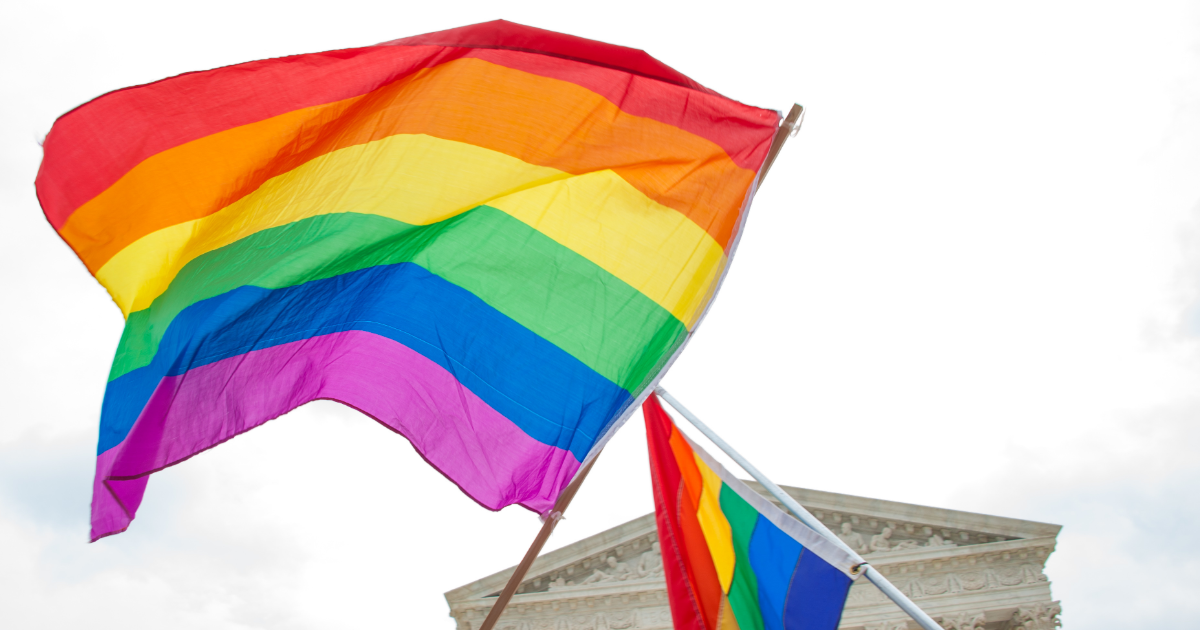

The Fairness for All Act
New Legislation Falls Short
12/9/19
John Stonestreet David Carlson

On Friday, Republican Representative Chris Stewart of Utah introduced the Fairness for All Act, which, as Christianity Today reports, “would prohibit anti-LGBT discrimination in employment, housing, and places of public accommodation, including retail stores, banks, and health care service providers.”
In essence, just like the proposed Equality Act supported by House Democrats, the Fairness for All Act would place sexual orientation and gender identity on par with race and religion as protected classes under the Civil Rights Act.
But there’s a major difference between Fairness for All and the Equality Act. The Fairness for All Act seeks to exempt religious organizations such as churches and nonprofits. So, for example, “Churches wouldn’t be required to host same-sex weddings. Christian schools wouldn’t have to hire LGBT people. Adoption agencies could receive federal funding even if they turned away same-sex couples looking to raise children.”
As such, Rep. Stewart and supporters of the Fairness for All Act see the bill as balancing religious freedom and LGBT rights.
Now I believe Fairness for All is a well-intentioned bill. And I believe that its supporters are truly trying to find ways to compromise with LGBT rights in order to preserve our religious liberties in the end.
But this Act is the wrong piece of legislation at the wrong time.
The Act would enshrine into law something that simply is not true, and for Christians that’s got to be a non-starter: that alternative sexual orientations and transgender identity are equal to race, that they are somehow immutable, something someone is born with. As my colleague Shane Morris discussed with me on BreakPoint This Week, the “born with” idea is a useful fiction created by the early proponents of the gay-rights movement to win public approval for their cause. They succeeded, of course, but it does not make the fiction any more true.
Second, the Act is addressing a non-issue. Back in the 1960s, the Civil Rights Act addressed a very real problem: There were entire swaths of the country where African Americans couldn’t find a hotel room, buy gas, or get a meal. And so public accommodations were necessary so African Americans could fully participate in society. That most certainly is not the case today with the so-called “sexual minorities.” When two men targeted cakeshop owner Jack Phillips to force him to design a cake for their same-sex wedding, they knew full well that there were plenty of cakeshops nearby that would gladly do what they asked.
This raises another problem with the Fairness for All Act: Only for-profit businesses “with 14 or fewer employees” would be exempt from the Act’s anti-discrimination rules.* In other words, if you’re a Christian business owner, and not a church or a religious non-profit, with more than 14 employees, you’re on the wrong side of the law—outside of the Act’s protections. Meaning Fairness for All isn’t really fairness for all.
And, as I explained on BreakPoint This Week, this act continues the ghastly idea that people of faith who insist on religious liberty are the bad guys. That they are bigots who need to be “exempted” precisely because they want to deny the rights of others.
The Fairness for All has its roots in what’s called the Utah Compromise, which was a state measure largely championed by the LDS church. It hasn’t worked in Utah and it’s not a good idea for federal legislation. In fact, these ideas were birthed under a previous presidential administration openly hostile to religious liberty—and when it looked like the next administration would be as well.
But elections matter. Federal courts and the Supreme Court are growing more conservative and more respectful of religious liberty. Now is simply not the time to give up the rights of individual believers in order to preserve the freedoms of religious institutions alone.
Now, do I think the Fairness for All Act will pass? No. Nor does Rep. Stewart. The Democrats hold the House and see no need to compromise at all on LGBT rights and religious rights.
And while there may be a way to truly balance these rights in the future, The Fairness for All Act isn’t it.
Editor’s note: Our original text stated that exemptions would not apply to for-profit businesses with 14 or few employees, which was incorrect. As we state now, for profit-businesses with 14 or fewer employees are exempt from the Act’s anti-discrimination rules. We apologize for the error.
Topics
Business and Economics
Christian Living
Culture/Institutions
Freedom of Religion/Speech
New Sexual Orthodoxy
Politics & Government
Public Square
Religion & Society
Sexual Ethics
Trends
Worldview
Resources:
Have a Follow-up Question?
Up
Next

Related Content

© Copyright 2020, All Rights Reserved.













